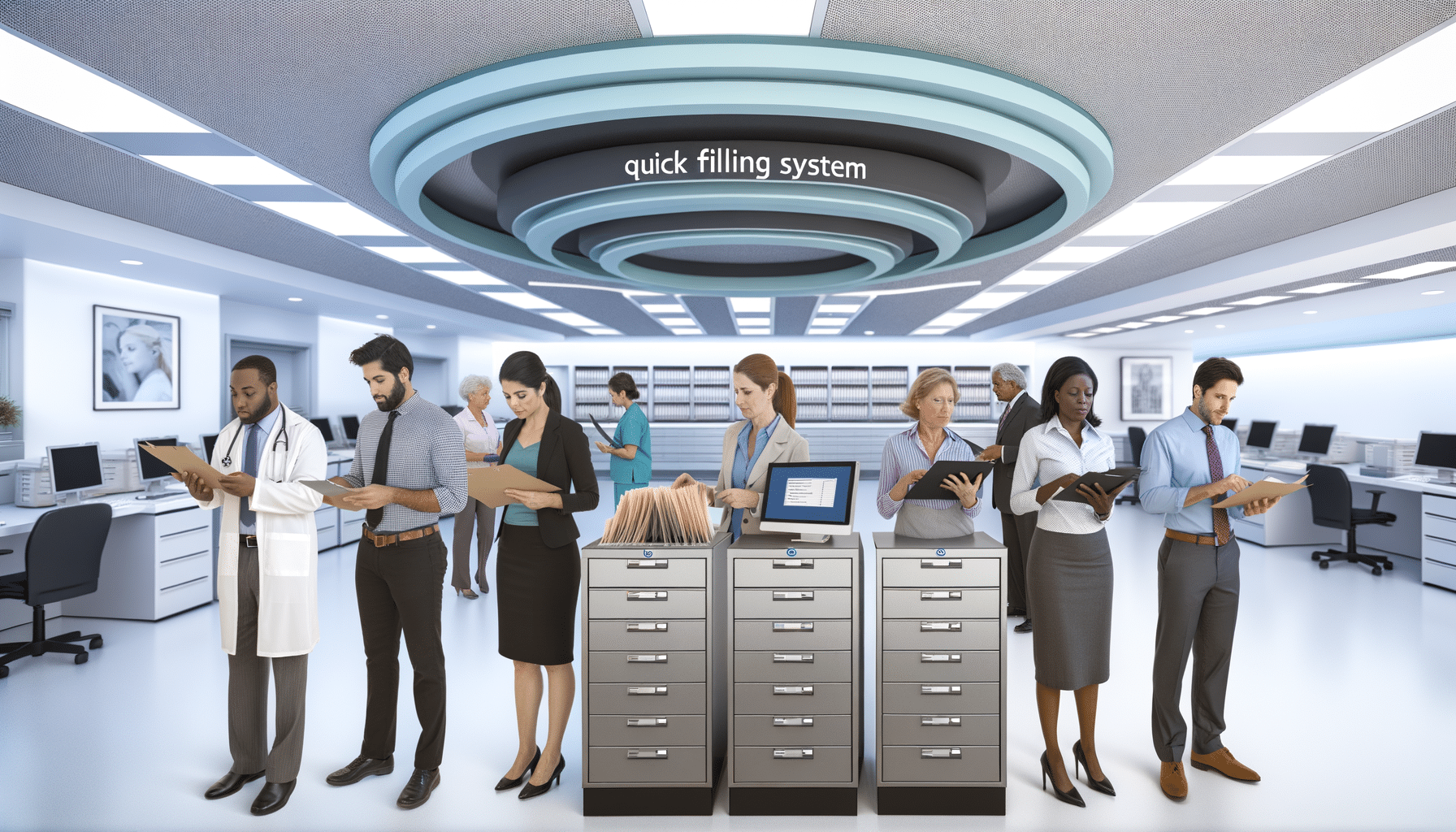- AI in Healthcare
- November 16, 2024
Blockchain for Disaster-Resilient Healthcare Records

Revolutionizing Healthcare Record Resilience with Blockchain
In the world of healthcare, the availability and integrity of patient records are paramount, especially in the face of disasters. Whether it’s a natural calamity like an earthquake or a man-made catastrophe, healthcare providers must ensure that vital records remain accessible and secure. Having witnessed numerous instances where data was lost during such crises, the question of fortifying record management systems continually intrigues me.
This is where blockchain steps in—a technology often spoken of in terms of finance but equally revolutionary in healthcare. When integrated into healthcare systems, blockchain fundamentally alters how we approach disaster recovery for medical records, making them more secure, immutable, and—most importantly—resilient to disasters.
Blockchain: A Game-Changer in Healthcare
At its core, blockchain technology offers a decentralized method of record-keeping. By distributing data across multiple nodes and making it immutable, blockchain guarantees that all entries made onto the chain are permanent and irretrievably secure. But how exactly does this translate to healthcare?
1. Ensuring Data Integrity and Security
In healthcare, the precision and authenticity of patient records can mean the difference between correct and improper care. Blockchain technology provides an unparalleled security framework that ensures these sensitive records are not altered or accessed without authorization. This becomes even more crucial during disasters when malicious intent potentially rises in the chaos.
By leveraging blockchain, healthcare providers can build a network that records patient data across a wide spectrum of applications. Each record is timestamped and linked to the previous one, creating an unbroken chain of information that’s not just secure but verifiable at any point in time.
2. Enhanced Disaster Recovery Capabilities
Traditionally, healthcare facilities rely on electronic health records (EHRs) stored in centralized databases. However, in scenarios where infrastructure could be compromised, these centralized systems become vulnerable, leading to potential data loss. Blockchain’s decentralized nature stands as a formidable solution here.
In a blockchain-empowered setup, even if one node is compromised, the patient data remains intact across surviving nodes. These redundancies facilitate swift disaster recovery, ensuring healthcare data remains available, thus enabling continuous patient care even amidst unforeseen disruptions.
3. Streamlined Interoperability Across Systems
The road to seamless disaster recovery is paved with interoperability. Healthcare systems often juggle several platforms which can complicate data sharing. Blockchain, however, can streamline this by providing a unified, secure system that allows various healthcare networks to communicate efficiently.
This interoperability fosters collaboration between multiple healthcare providers, ensuring no data is lost or delayed due to unaligned systems—a vital feature in emergency situations where time is of the essence.
Blockchain-Powered Security in Action
Several healthcare entities globally have already begun deploying blockchain for enhanced disaster recovery systems. For example, during the recent global pandemic, blockchain technology helped maintain robust records, avoiding discrepancies, ensuring reliable vaccine supply chain management, and preserving the integrity of public health data.
I believe that by addressing common vulnerabilities in record-keeping, we can pave the way toward building more resilient healthcare environments. Blockchain empowers healthcare providers to not only protect their patient data but also use it proactively in times of crisis, ensuring timely treatments and saving lives.
Strategizing for the Future
Transitioning to blockchain in healthcare isn’t without its challenges. It requires investment in infrastructure and education to manage and deploy blockchain solutions effectively. But, for compliance heads and IT decision-makers looking to enhance their organization’s resilience against disasters, blockchain represents an opportunity to turn a critical weakness into a formidable strength.
At RecordsKeeper.AI, I’ve been at the forefront of exploring these technologies and the potential benefits they hold—not just for record management but for global health security. Blockchain for disaster recovery in healthcare is an effort to ensure that no crisis ever compromises the quality of care patients receive.
Conclusion
The stakes in healthcare are extraordinarily high, and the need for a robust, failproof disaster recovery strategy is undeniable. By coupling blockchain with existing systems, healthcare providers can spearhead the initiative towards comprehensive record security—preparing them for the challenges of tomorrow. I invite you to explore the benefits of blockchain further to see how this transformative technology can drive resilience and security in healthcare, ushering a new era of disaster-proof medical records.
Follow me on this journey to discover more about how technological innovations can redefine the landscapes of healthcare and beyond. Join us at RecordsKeeper.AI, where we strive to lead the change—one revolutionary solution at a time.
Toshendra Sharma is the visionary founder and CEO of RecordsKeeper.AI, spearheading the fusion of AI and blockchain to redefine enterprise record management. With a groundbreaking approach to solving complex business challenges, Toshendra combines deep expertise in blockchain and artificial intelligence with an acute understanding of enterprise compliance and security needs.
Related Posts

Quick Filing Systems for Busy Clinics
Efficient filing methods for high-traffic medical offices.
- December 16, 2024

Handling Rush Requests for Medical Records
Managing urgent medical record requests efficiently.
- December 1, 2024
Archives
- January 2025
- December 2024
- November 2024
- October 2024
- September 2024
- August 2024
- July 2024
- June 2024
- May 2024
- April 2024
- March 2024
- February 2024
- January 2024
- December 2023
- November 2023
- October 2023
- September 2023
- August 2023
- July 2023
- June 2023
- May 2023
- April 2023
- March 2023
- February 2023
- January 2023
- December 2022
- November 2022
- October 2022
- September 2022
Want to get more content like this?
Signup to directly get this type of content to your inbox!!
Latest Post
Document Control for Equipment Maintenance
- January 20, 2025
Managing Records for Multiple Clients
- January 19, 2025
Handling Conference Documentation
- January 18, 2025
Setting Up Department Record Reviews
- January 17, 2025





